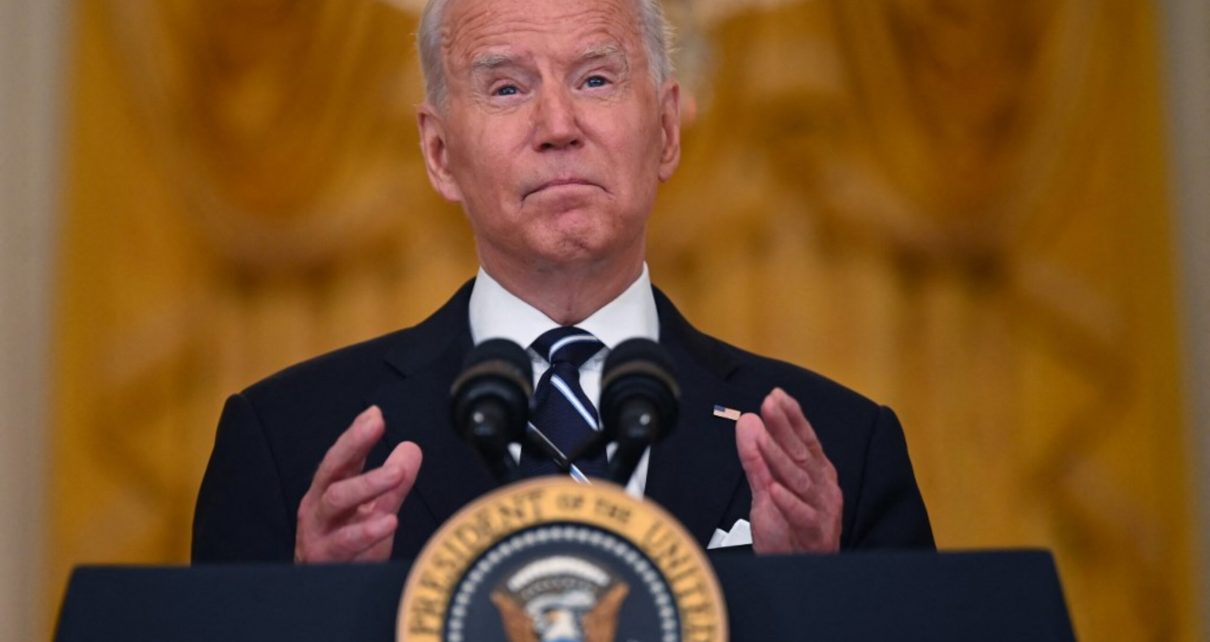
SUDDENLY, THE UNITED STATES OF AMERICA, the world’s number one self-appointed policeman, is the butt of vicious jibes. Some have likened the US misadventure in Afghanistan to the tragic fall of Kunrumi in Ola Rotimi’s play of the same title.
Ola Rotimi painted the trajectory of Kunrumi’s hubris vividly: “When the tortoise is going on a senseless journey and you say to the tortoise, ‘brother tortoise, brother tortoise, when will you be wise and come back home? Eehn! The tortoise will say: Not until I’ve been disgraced, not until I’ve been disgraced… disgraced, disgraced, not until I’ve been disgraced!”
Some other commentators have interpreted America’s undignifying exit from Afghanistan as the consequence of hubris. Let us remember that hubris (hybris in Greek) was the goddess or personified spirit (daimona) of insolence, hubris, violence, reckless pride and arrogance.
The day of sober reflection has come upon America. That country will do its unborn generations a world of good if, going forward, it learns from history and ancient mythology. The story is told by Aesop, the Greek fabulist and storyteller, of how hubris leads to war and ruination.
The current whirlwind confounding the most powerful country on earth was self-originated as Hilary Clinton (then Secretary of State) admitted in 2009:
“Let’s remember here, the people we are fighting today, we funded 20 years ago. And we did it because we were locked in the struggle with the Soviet Union. They invaded Afghanistan and we did not want to see them control Central Asia. And we went to work. And it was President Reagan in partnership with the Congress-led by Democrats who said, you know what? Sounds like a pretty good idea. Let’s deal with the ISI and the Pakistani military and let’s go recruit these Mujahideen. And that’s great.
“Let’s get some to come from Saudi Arabia and other places importing their Wahhabi brand of Islam so that we can go beat the Soviet Union. And guess what? They retreated. They lost billions of dollars and it led to the collapse of the Soviet Union. So there is a very strong argument which is that it wasn’t a bad investment to end the Soviet Union, but let’s be careful what we sow because we will harvest.”
Brutally prophetic!
The US, in a bid to upstage the Soviet Union and cage terror, sowed the wind. The fact that it is now reaping the whirlwind is totally predictable. That is what happens anytime any force, no matter how powerful, overstays its welcome. No one can blame the US for going after the masterminds of the 9/11 attacks which killed almost 3,000 people on US soil. Had the US made a quick exit after killing the Al Qaeda leader, Osama Bin Laden, in Pakistan, and mopping up his key henchmen and sympathisers in Afghanistan, it would have avoided the current disgraceful cut-and-run.
It is difficult not to draw a parallel between what happened in Afghanistan and the Vietnam war where the US lost 58,000 soldiers and civilians in the most unpopular war in US history in which communist forces overran Saigon and the Americans fled with the remnants of their forces. Kabul, the Afghanistan capital, now taken over by the Taliban on August 15, 2021, is a sad throwback to Saigon and a sad reminder of America’s misadventure in Iraq.
In the two decades since they were ousted from power, the Taliban have been waging a relentless insurgency against the US-backed Afghan government. Relying not only on conventional weapons of modern warfare, but they also deployed their deep knowledge of tribal politics and weaponised religious puritanism. In the face of unbridled corruption, endemic lack of patriotism and incompetence of the government in Kabul, the Taliban inched their way to victory over time.
Carter Malkasian, author of “The American War in Afghanistan: A History,” said the Afghan forces sometimes lacked coordination and suffered from poor morale. “Afghan forces, for a long period of time, have had problems with morale and also their willingness to fight the Taliban,” he said.
Corruption was also a big problem. The assessment made in 2006 by Col. Christopher Kolenda, a US Army advisor to three US generals in charge of the war, was very symbolic: “I like to use a cancer analogy,” Kolenda said. “Petty corruption is like skin cancer; there are ways to deal with it and you’ll probably be just fine. Corruption within the ministries, higher level, is like colon cancer; it’s worse, but if you catch it in time, you’re probably ok. Kleptocracy, however, is like brain cancer; it’s fatal.”
US President, Joe Biden, took a few days to react publicly to the development, and when he did he won my respect for the professionally crafted speech he delivered. It was obvious that some very talented messaging experts had worked overtime behind the scenes. He laid out the US position in seeming candour but even then it was a sad day for America to admit that a culture they had looked down on, and over which they had ridden their high horses roughshod, had beaten them to retreat.
Four American presidents (including the incumbent) superintended the Afghan debacle. Biden said he did not intend to pass the problem on to a fifth president. He had rhetorical questions for his critics:
“How many more generations of America’s daughters and sons would you have me send to fight Afghanistan’s civil war when Afghan troops will not? How many more lives, American lives, is it worth, how many endless rows of headstones at Arlington National Cemetery? I’m clear on my answer: I will not repeat the mistakes we’ve made in the past. The mistake of staying and fighting indefinitely in a conflict that is not in the national interest of the United States …”
With $20 billion worth of the most dangerous military hardware in the world, the Taliban are now in possession of more Blackhawk helicopters than 166 other nations around the world and have inherited an air force with 11 military bases. Between April and June 2021, the US handed over to the Afghan National Defense and Security forces (ANDSF) six A-29 light attack aircraft, 174 High Mobility Multipurpose Wheeled Vehicles (Humvees), about 10,000 2.75 inch high-explosive rockets, 61,000 40-mm high explosive rounds, 9,000,000 rounds of .50 calibre ammo, and 20,156,000 rounds of 7.62 mm bullets. The Afghan Air Force has an inventory of 211 air platforms.
From the US perspective, to describe what has happened as a nightmare is a bleeding euphemism. Over $1 trillion down the drain? Disaster has no fitting cognomen.
The US government should have borrowed some wisdom from the Rambo movie of the 90s where Rambo was riding a horse alongside an Afghan. “This is Afghanistan”, announced his interlocutor. “Alexander the Great tried to conquer this country, then Ghenghis Khan, then the British, now Russia. But Afghan people fight hard; they’ve never been defeated. Ancient enemies make prayers about these people. Do you wish to hear? It says, “May God deliver us from the venom of the cobra, teeth of the tiger and the vengeance of the Afghans”.
But, wait a minute! Believe it or not, that thing about vengeance can also be said of the Americans. So, anyone thinking that the US has suddenly become a spring chicken because of the Afghanistan setback needs to go back to school.
Similarly, any American who refuses to understand that big armaments are not the answer to all human problems is living in the past. The American way is not necessarily the global way, as Charles Addams beautifully captures it: “Normal is an illusion. What is normal for the spider is chaos for the fly.”


